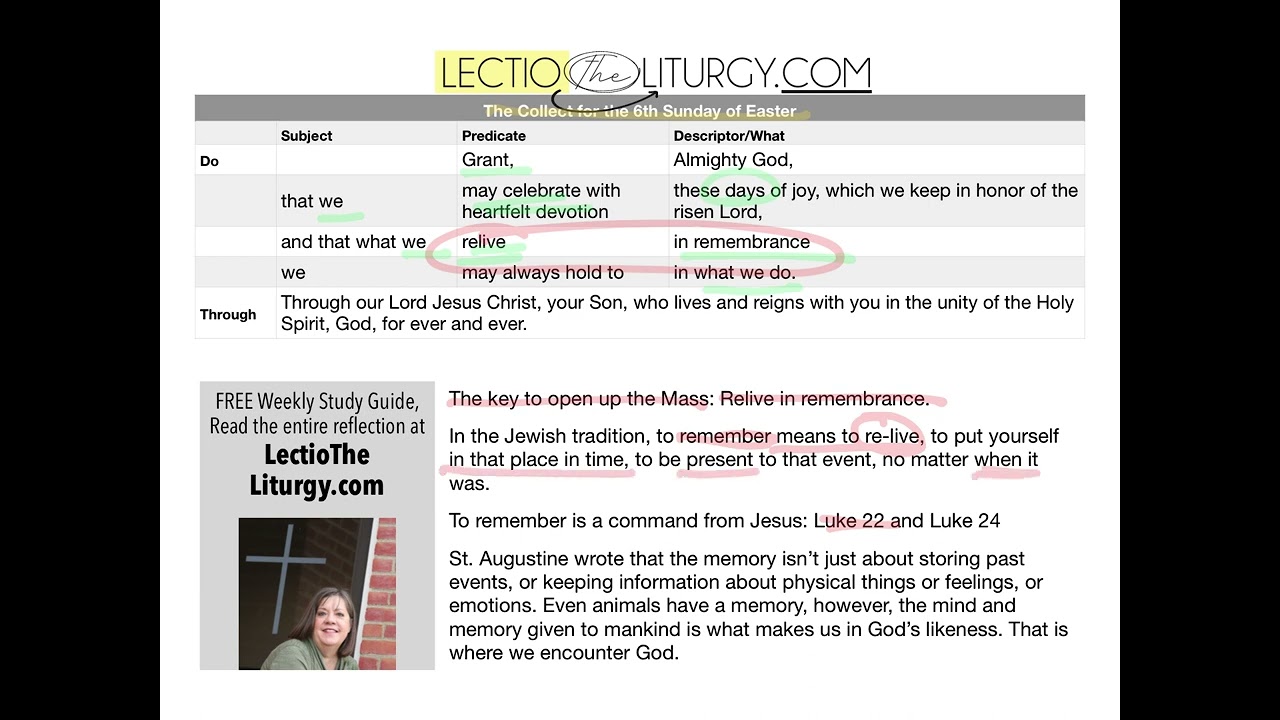Collect 6th Sunday of Easter
This week we Lectio the Liturgy with the Collect for the Sixth Sunday of Easter. In the prayer this week, I found a key to the open the mystery of the Mass.
Grant, almighty God, that we may celebrate with heartfelt devotion these days of joy, which we keep in honor of the risen Lord, and that what we relive in remembrance we may always hold to in what we do. Through our Lord Jesus Christ, your Son, who lives and reigns with you in the unity of the Holy Spirit, God, for ever and ever.
What is the key? Relive in remembrance.
The prayer asks that we may celebrate with heartfelt devotion, or diligent affection, these days of Easter, which we keep in honor of the risen Lord.
We observe and celebrate the season of Easter, the highest Feast of the Church, because it is the greatest gift ever given to mankind. Without the life, death, and resurrection of Jesus, we have no forgiveness of sin and eternal life in heaven.
Jesus commands us to relive in remembrance, or remember his sacrifice, in Luke 22. There we read the story of the Last Supper, “Then he took the bread, said the blessing, broke it, and gave it to them, saying, ‘This is my body, which will be given for you; do this in memory of me.’”
In Jewish tradition, to remember isn’t just to think back and remember that it was a nice day and the cake looked good. To Jewish people, even today, to remember means to re-live, to put yourself in that place in time, to be present to that event, no matter when it was.
To relive, to become present to his sacrifice, is what Jesus wants us to do at the Mass. It’s so important to Him that he celebrated mass the on the same day he rose from the dead.
In Luke 24, we learn that after the Resurrection, Jesus came upon a couple of disciples walking on the road to Emmaus. It grew late and they invited him to stay with them. Verse 30 reads, “And it happened that, while he was with them at table, he took bread, said the blessing, broke it, and gave it to them.”
Perhaps the best part of the Emmaus story comes in Luke 24:35, when the disciples rush back to Jerusalem, tell the others their story and how “he was made known to them in the breaking of the bread.” Today He is still made known to us in the breaking of the bread.
St. Augustine wrote that the memory isn’t just about storing past events, or keeping information about physical things or feelings, or emotions. Even animals have a memory, however, the mind and memory given to mankind is what makes us in God’s likeness. That is where we encounter God.
When we truly hold on to what we experience at Mass, it will not only be us, but the world around us that will never be the same.
Thank you for praying with me,
Julie
